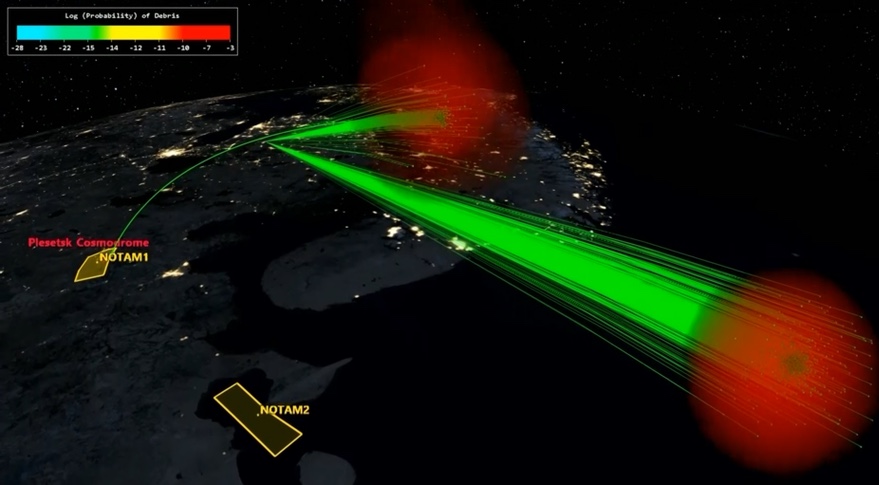Aerospace study: ‘In crises and conflicts, commercial space actors risk getting caught in the middle of a tense and escalatory environment’
WASHINGTON — Experts have labeled the Ukraine conflict the first commercial space war due to the extensive use of private-sector satellites for imagery and for communications, with companies like SpaceX and Viasat becoming targets of electronic and cyber attacks.
Commercial satellites have crossed the Rubicon and companies need to figure out how they will cope with the prospect of intentional or accidental attacks during international conflicts, says a new report by Aerospace Corp.
Typically only companies that provide direct services to the U.S. military would consider security issues to be relevant to day-to-day commercial operations, but that is changing, the report says.
“In crises and conflicts, commercial space actors risk getting caught in the middle of a tense and escalatory environment,” writes Robin Dickey, space policy and strategy analyst at Aerospace’s Center for Space Policy and Strategy,
An attack could occur “either because a commercial system is misidentified as a military system or because that commercial system is suspected of acting aggressively or threateningly,” the report says.
Because of these risks, Dickey argues, commercial space companies should consider getting directly or indirectly involved in international efforts to develop norms of behavior in space, even though traditionally only governments and the United Nations take the lead in space security policy discussions.
Some of these norms, the report suggests, could involve the application of existing laws of armed conflict that protect civilians and their property. Other norms could be the adoption of minimum cybersecurity standards for all satellites.
“Commercial actors should not be left out of the discussion,” the report says, and should be proactive to mitigate potential threats that could disrupt the capabilities and services they provide to customers.
Major powers are “talking more explicitly about an era of militarized competition,” Dickey points out. “And commercial actors will likely have to operate in times that are not so peaceful, and commercial companies will not be exempt if conflict breaks out. In those situations, norms could help to mitigate some of the risks and threats for commercial operators.”
If a nation state were to blow up another nation’s satellite with a missile strike during a conflict, the impact from the debris could affect commercial satellites in unpredictable ways, the report noted.
Throughout the history of war, significant harm was inflicted on civilians or their property, leading to the adoption of international norms to mitigate collateral damage. “This parallels the challenges of indiscriminate systems in space — like debris-producing anti-satellite weapons,” says the report. “The destruction of a satellite in a conflict could result in the destruction of a commercial satellite on the other side of the world months or years later, a similar dynamic to the persistent threat of landmines for decades after they were deployed.”
